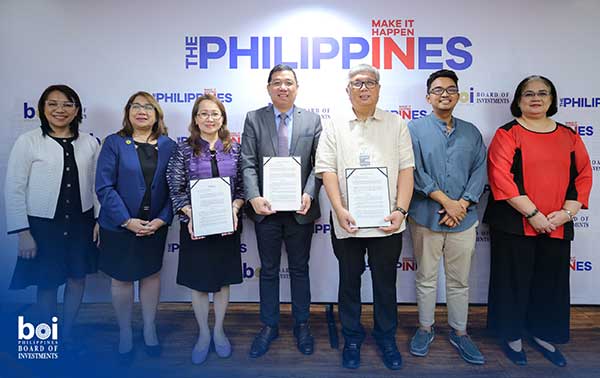
By Francis Allan L. Angelo
The Philippine Board of Investments (BOI), University of the Philippines-Manila (UPM), and University of the Philippines-Los Baños (UPLB) have signed a Memorandum of Understanding (MOU) to promote locally-developed biofertilizers and herbal medicine technologies.
The MOU, signed on August 20, 2024, aims to facilitate technology transfer and investment promotion for biofertilizers and herbal medicine, technologies already developed by UP Manila and UP Los Baños.
These efforts align with BOI’s five-year agribusiness plan aimed at strengthening local industries and reducing dependence on imports, according to a BOI press statement.
“This MOU will be a strategic tool to pursue all these opportunities through the promotion of the commercialization of the technologies already developed by UP Los Baños and UP Manila for biofertilizer and herbal medicines,” said Trade Undersecretary and BOI Managing Head Ceferino Rodolfo at the signing ceremony.
Rodolfo was joined by key officials from both universities, including UPM Vice Chancellor for Research Dr. Leslie Michelle Dalmacio and UPLB Vice Chancellor for Administration Prof. Rolando T. Bello. The officials emphasized the importance of this collaboration in advancing both the agriculture and health sectors.
Enhancing Local Industry
One of the critical goals of the MOU is to bring these innovations to the market. UPLB, known for its excellence in agricultural research, has produced commercially viable biofertilizer products through its National Institute of Molecular Biology and Biotechnology (BIOTECH). According to the Fertilizer and Pesticide Authority, UPLB is the only local agricultural academic institution with registered biofertilizer products, further underscoring the importance of this collaboration.
UPM, through its Institute of Herbal Medicine, has been a leading institution in herbal medicine research, particularly under the National Integrated Research Program on Medicinal Plants. “We are formalizing our partnership with the signing of this MOU. The document reflects our shared commitment to the triple goal of advancing sustainable agricultural production, enhancing public health, and strengthening the local economy,” said Dalmacio.
Roadshows and Investments
The BOI has set plans to kick off domestic investment roadshows in key regions, namely Regions 3, 6, and 10, to promote the biofertilizer and herbal medicine technologies developed by UPM and UPLB. These roadshows will aim to attract investors and facilitate market access for these locally developed products.
Executive Director Ma. Corazon Halili-Dichosa of the BOI’s Industry Development Services (IDS) explained that these roadshows are crucial for increasing investments. “Through these roadshows, we hope to increase investments by facilitating market access for Philippine-developed products and technologies. BOI stands ready to provide incentives and pursue collaborative projects favoring the development of local biofertilizer and herbal medicine industries,” Halili-Dichosa added.
Impact on Agribusiness and Health
The focus on biofertilizers aims to reduce the country’s reliance on imported agricultural inputs, while promoting local technologies to enhance the sustainability of the agriculture sector. For herbal medicines, the Philippines, which is home to over 13,500 plant species, has prioritized ten medicinal plants under the National Integrated Research Program for Medicinal Plants (NIRPROMP) and the Tuklas Lunas Program.
According to UPLB’s Vice Chancellor Bello, “Today marks a milestone in our ongoing journey towards achieving sustainable development for science and technology and innovation. This MOU marks a new chapter of government-academe collaboration.”
The BOI expects that developing these sectors will not only help secure the country’s food supply but also create new jobs and value-added opportunities, ultimately boosting the local economy.


















